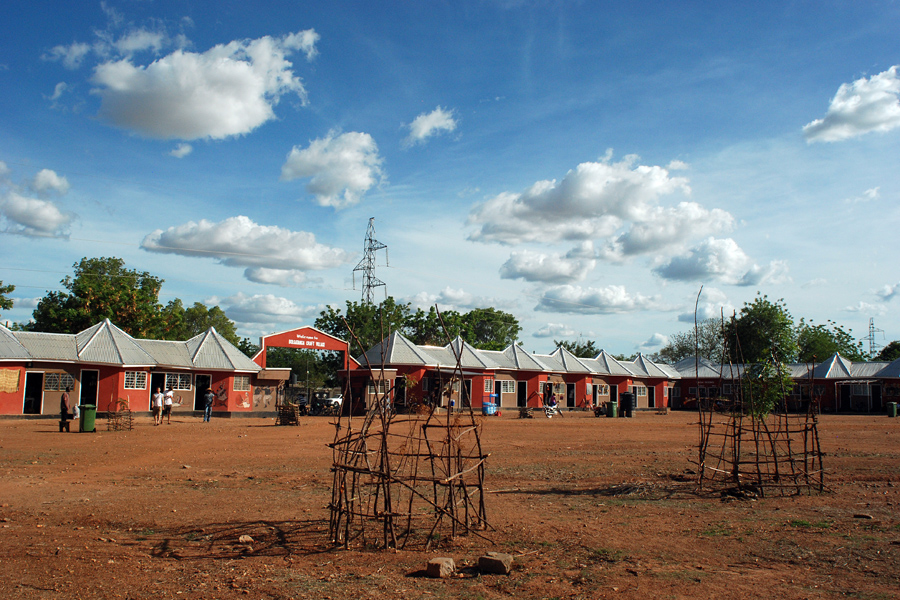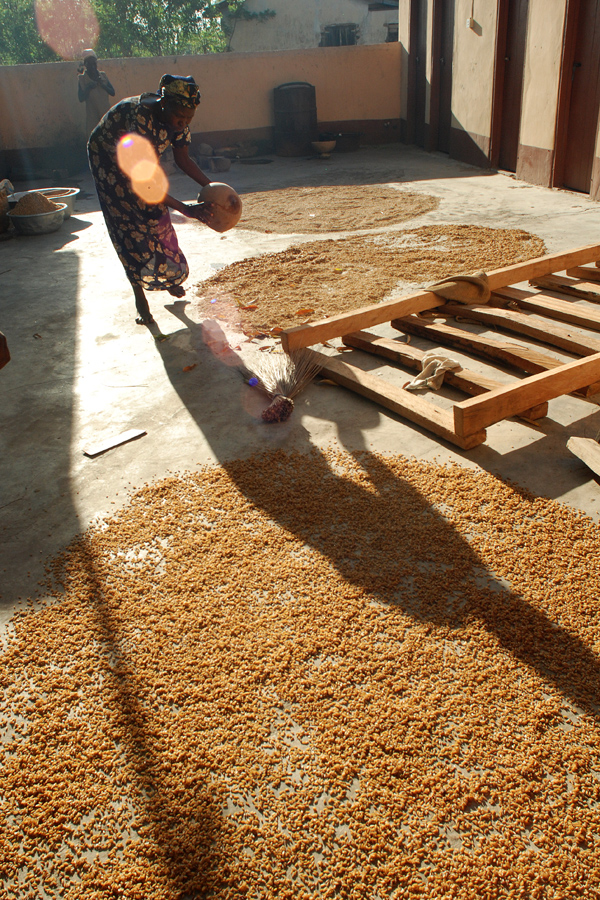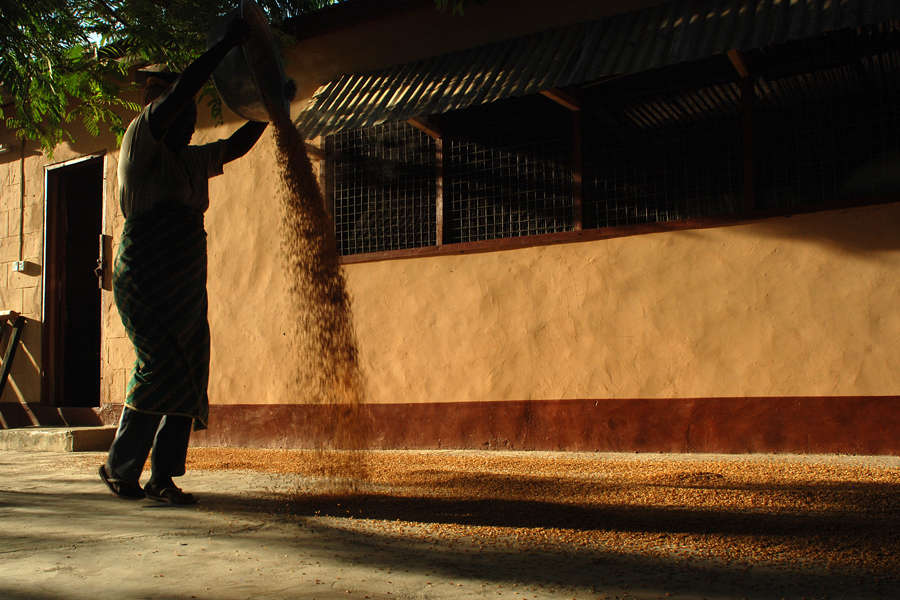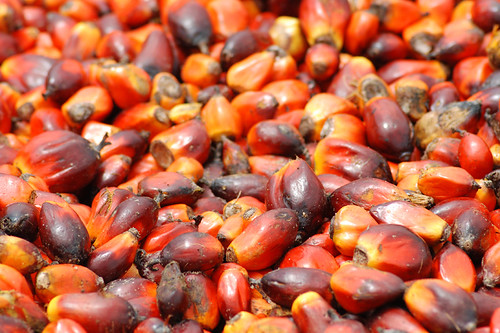Ghana would flash alongside despots and endangered gorillas on the international media’s Africa radar if peace and friendliness were newsworthy. But Ghana, a nation where followers of all faiths—Christians, Muslims, and Traditionalists, all—work, eat, joke, and vote together, displaying a remarkably high level of mutual acceptance as they enjoy their constitutional right to Freedom of Worship, is still a bit of a secret. If there’s one thing we’re not good at, though, it’s keeping secrets that really ought to be shared, which is why we decided to write this story.
The idea took form during one of many spontaneous trotro journeys. I had been “sweating like a pregnant toad”, as Ghanaians say, in velvet-heavy humidity on the hot side of an old, rusting lorry-bus (trotro), while a lay-preacher shouted a revival-style sermon above my head for three hours before we set off on a four hour journey that unfolded, like a market lady’s wrap skirt, to seven hours, because we broke down. It was while five men were simultaneously shouting at the driver who was banging on a piece of smoking engine, and every other man stood peeing along the road facing the jungle halfway to Kumasi, and one proposed for my hand in marriage, that the three Ghana survival essentials whacked me over the head. It was a perfect Zen-coma-trotro moment, a state you must enter to endure and rationalize the numerous near death experiences and delays that every road journey absolutely guarantees. I thought I best mention these survival essentials now, before we get started; you might want to find another country. Although, this advice applies in varying degrees to travel across all of Africa and most developing nations.
Right. So, when a man (or woman) peeing along the side of the highway proposes marriage to you midstream—the eleventh in two days (granted, the other ten weren’t peeing)—and all you want to do yourself is pee (but you can’t because all eyes are on you), and get where you had to be—three hours ago, you need Patience, with a very, very capital P. You might point out that there is no middle road when it comes to capitalisation, and that’s how it is with this most important of attributes. In fact, since you made it to the end of this paragraph, you might actually have what it takes.
Now, if you’re over thirty you’ll remember waking up early to catch the best cartoons, and how much Boy George wanted to be Madonna, and how much Jon Bon Jovi just wanted their hair, and all the chores you did to save up for those feather hair-clip thingies and stone-washed denim jeans. Well, Whoa-oh! We’re halfway there-ere…Whoa-oh!...because the second most important survival attribute is (not an ability to spout useless 80s pop trivia but, rather) a Scooby-Doo-like, Dogged Determination. (By the way, if you’re under thirty, you’re probably not still singing “whoah-oh, living on a prayer-er…” Anyway, whatever age, you’ll be saying your prayers in Ghana—especially on the road.)
The determination is because you will encounter many obstacles along your journey. This is a good thing. It may be locating the vehicle (among thousands) to take you where you wish to go (which may not necessarily be where you end up), or finding the office that processes the twenty-third piece of paper you need to legitimize your stay, or finding a copier to copy the twenty-third piece of paper since the office (now you have finally located it) has a photocopier but it’s “finished” (not working), or not giving up when the internet crashes for the fifteenth time in an hour and you still haven’t opened one email.
It’s more a tortoise than a hare kind of determination, if that helps, because nothing gets done fast, except switching channels to the UEFA Championship, or the English Premiere League, or any Blackstars game.
And, finally, the third and final attribute, which is as much about survival as preventing malaria, is this: A-Steve-Martin-meets-Billy-Connelly-meets-Queen-Latifah-who-meets-The-Queen-of-England, royally-bonkers, whacked-out Sense Of Humour; after the fifty-fifth, breaking-down-pee-copier-email incident, you will need it.
In fact, your journey’s sub-theme could be: Learning How to Laugh No Matter What. Because there is the poverty you’re not going to believe when you first encounter it. Poverty is not “funny haha”, but life is, and the ladies selling strings of beads from shiny aluminium bowls balanced on their heads, and the elderly woman selling freshly charred plantains from her smoking brazier by the open sewer, or the children who shout “obruni!” when they spot you every few feet, or the men or women you promise to marry if they agree to be husband/wife number seventeen, will be shaking with laughter.
If you are not naturally blessed with the three attributes, you have two choices:
1. Cultivate them very quickly, or
2. Try Europe instead. Apparently the London underground only keeps you waiting an hour on a bad day. It’s up to you. Look. I don’t know much, but I do know that life in Ghana is nothing if not wildly unpredictable. It is certainly not “neat” or “conventional”: Japan is neat; France is conventional; Ghana is anything but.
Right? Now we can begin. Although, this is not exactly the beginning. And it’s definitely not conventional. Patience, trust me.
And so your journey begins...
This piece is the introduction to our Ghana guide.
ps. those are palm nuts in the photo. Palm nut oil, pressed from the nuts, forms the basis of almost all roadside cooking in Ghana. You will see palm nuts spread on the sides of highways drying. If you happen to care for an African grey parrot, they love them! Image by by
super.heavy. I urge you to check out his Ghana collection of photos.







































